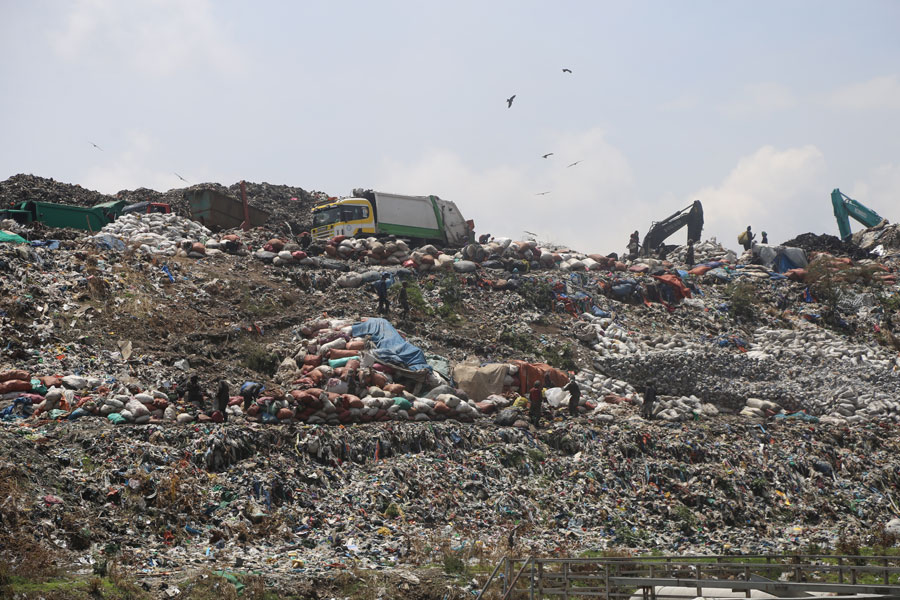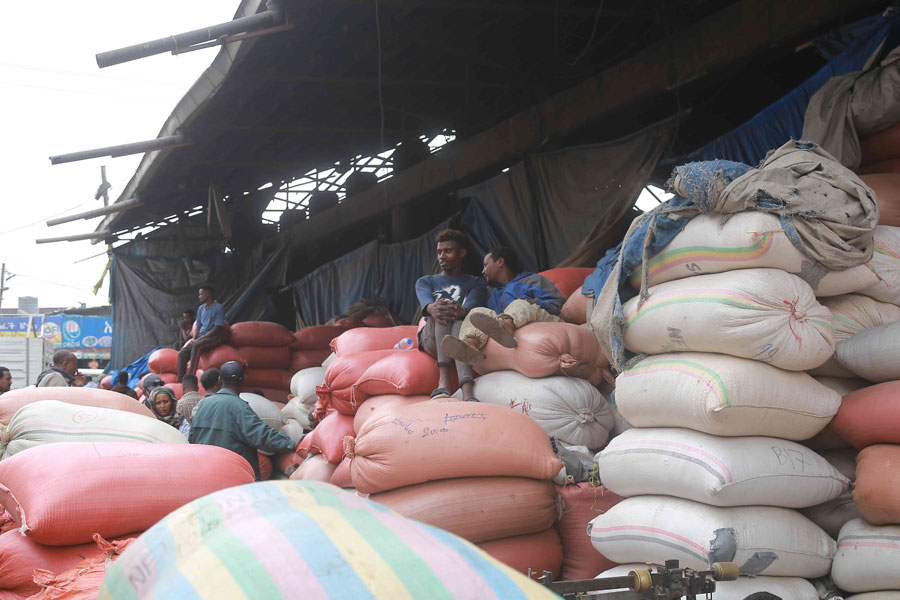
Radar | Feb 16,2019
Jul 23 , 2022
By Abdulmenan M. Hamza
Ethiopia has experienced several episodes of international oil price shocks before but with much less volatility at the gas pump. The logic and timing of the recent massive increases in petroleum product prices are questionable, writes Abdulmenan Mohemmed (abham2010@yahoo.co.uk), a financial statement analyst with two decades of experience.
One of the woes affecting Ethiopia's economy is an oil price shock. Due to the Russian-Ukraine war, the price of crude oil soared to 140 dollars a barrel in March, the highest figure since mid-2008. With the fear of global recession, the price of crude oil has seen a downward trend, and it is currently trading at around 100 dollars a barrel.
The significant increase in global oil price occurs as the Birr has been depreciating. It is a double whammy. Global oil price increases combined with the fast depreciation of the Birr increase the import price of petroleum products substantially.
To address the oil price shocks, the government increased the pump prices of petroleum products three times in the past eight months, more than two-fold. In the most recent price review, some petroleum products increased by more than 30pc. The size of the latest increase has fed fears that it would exacerbate the inflationary situation and punish consumers.
In the past decade, Ethiopia has experienced several episodes of international oil price shocks but the petroleum products pricing strategy was much more sensible as the price adjustment was well managed. The recent massive increase in petroleum product prices, however, makes me question not only the logic of the rise but also the timing.
The global price of fuel is always volatile and highly susceptible to shocks. Over the past eight years, there were times when Ethiopia enjoyed cheap international fuel prices. From July 2015 to September 2016, for five consecutive quarters, the average price of Brent Crude Oil was 50 dollars or less a barrel. Similarly, for the whole of 2020, the average price of Brent Crude Oil was below 60 dollars a barrel, plummeting to as low as 29 dollars a barrel in the third quarter of 2019/20. There were also times when surging oil prices hit the economy. Before September 2014, the average price of Brent Crude Oil was more than 100 dollars a barrel for several quarters.
Despite such volatility, the increase or decrease in the pump prices of petroleum was smooth and gradual, save for a few occasions. This approach has significantly reduced the shock on the economy and consumers.
Apart from the occasional global oil price shock, much of the trouble has mainly come with the fast depreciation of the Birr in recent years. In the past four years, the currency has depreciated by nearly 100pc percent against a basket of currencies. The effect of the depreciation of the Birr on the import price of petroleum is severe.
It helps to go back in history to address the oil price shock of today. In 2001, the Petroleum Stabilisation Fund was created as a shock absorber. The Fund was designed to smooth out the prices of petroleum products in the domestic market. In times of downward movement in the global petroleum prices, the local prices are maintained, enabling the Fund to accumulate significant reserves. In times of unfavourable price movements in the international market, the reserves are used to subsidise the prices of petroleum products in the local market.
Although the design of the Stabilisation Fund appears sound, it has had practical drawbacks. In times of low international oil price volatility, it works fine. The trouble is when the global price of oil surges. The resources held by the Fund are consumed rapidly as the pump prices remain the same until the following price review. In this case, the government is forced to top up the Fund.
The other issue is that while the expectations of pump price increases encourage hoarding, the expectations of pump price reductions lead petrol stations to empty tanks, particularly when the price review date approaches. This causes supply disruptions across the country. A decade ago, inventory count used to be conducted at petrol stations before the price review date for refunds or additional charges. The system was abandoned as it was abused. The result is chaos a few days ahead of price review.
Petroleum supply and pricing are vulnerable to the global oil price shock, fast depreciation of the Birr and distributional issues. Addressing these problems requires innovative solutions. Using financial instruments such as crude oil derivates institutes predictability in the price of petroleum products. Significant automation in information processing enables to obtain the latest pricing data, leading to increased frequency of price review and smooth price development. This would deter the fast depletion of the Stabilisation Fund and helps reduce the supply disruption at petrol stations.
Involving the private sector in petroleum supply, as in Kenya and Tanzania, may increase options. Equally important is the savings arising from the recent drop in the global oil price, which should accrue to final consumers.
PUBLISHED ON
Jul 23,2022 [ VOL
23 , NO
1160]


Radar | Feb 16,2019

Fortune News | Jul 11,2021

Commentaries | Apr 22,2022

Radar | Oct 01,2022

Viewpoints | Aug 27,2022

Fortune News | Mar 20,2021

Agenda | Mar 25,2023

View From Arada | Nov 26,2022

Agenda | Mar 04,2023

Fortune News | Apr 20,2024

My Opinion | 131981 Views | Aug 14,2021

My Opinion | 128369 Views | Aug 21,2021

My Opinion | 126307 Views | Sep 10,2021

My Opinion | 123925 Views | Aug 07,2021

Dec 22 , 2024 . By TIZITA SHEWAFERAW
Charged with transforming colossal state-owned enterprises into modern and competitiv...

Aug 18 , 2024 . By AKSAH ITALO
Although predictable Yonas Zerihun's job in the ride-hailing service is not immune to...

Jul 28 , 2024 . By TIZITA SHEWAFERAW
Unhabitual, perhaps too many, Samuel Gebreyohannes, 38, used to occasionally enjoy a couple of beers at breakfast. However, he recently swit...

Jul 13 , 2024 . By AKSAH ITALO
Investors who rely on tractors, trucks, and field vehicles for commuting, transporting commodities, and f...

Jul 5 , 2025
Six years ago, Ethiopia was the darling of international liberal commentators. A year...

Jun 28 , 2025
Meseret Damtie, the assertive auditor general, has never been shy about naming names...

Jun 21 , 2025
A well-worn adage says, “Budget is not destiny, but it is direction.” Examining t...

Jun 14 , 2025
Yet again, the Horn of Africa is bracing for trouble. A region already frayed by wars...

Jul 6 , 2025 . By BEZAWIT HULUAGER
The federal legislature gave Prime Minister Abiy Ahmed (PhD) what he wanted: a 1.9 tr...

Jul 6 , 2025 . By YITBAREK GETACHEW
In a city rising skyward at breakneck speed, a reckoning has arrived. Authorities in...

Jul 6 , 2025 . By NAHOM AYELE
A landmark directive from the Ministry of Finance signals a paradigm shift in the cou...

Jul 6 , 2025 . By NAHOM AYELE
Awash Bank has announced plans to establish a dedicated investment banking subsidiary...